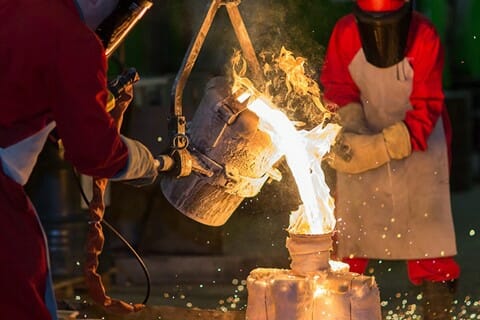Manufacturing can be costly, and businesses are always trying to streamline processes in order to save money and boost profits.
However, it’s important to keep quality in mind as well, so manufacturers must be sure they’re not lowering their standards when looking to make cuts.
Graham Stubbs, Managing Director at investment casting experts, Dean Group, takes a look at some of the ways your business can take stock of your spending and to identify ways to save money while still offering quality services and products.
Have a Long-Term Plan
Lack of a solid, long-term plan will likely lead to overspending or to investing money in things that are not exactly needed. By planning ahead, you can better prepare for all eventualities. You can also more easily identify opportunities to save money and can prevent issues such as additional time to deliver products to clients.
If you know you’re going to require a large quantity of a specific product a year from now, for instance, it’s more cost-efficient to order in bulk instead of placing small orders every few months.
However, despite this, it’s equally important not to become inflexible when it comes to the plan. The industry is always changing, and new technologies are constantly being developed; this means that, if you don’t have an agile plan and business, you can actually miss out on key opportunities.
Use Automated Systems
We’ve already discussed the importance of automation in UK industries, including manufacturing. Using automated systems and processes, which gives you an edge over the competition and allows you to implement innovative ideas, is essential to the 4th Industrial revolution.
While automation does require an initial investment, it will help you to save money later down the line; for example, by developing new processes and automating repetitive processes, you can reduce human error, cut down costs, improve product quality, and more.
Be it robotics or a custom CRM, automation will boost the performance of your systems and help you to run your manufacturing business more efficiently.
Recycle When Possible
Another way to save money is by recycling materials instead of sending them to landfill. If the materials don’t lose quality after being used, you can reuse them in order to prevent wastage; because you’ll need fewer materials, you’re saving money at the same time.
You can also sell materials to other businesses if you no longer need them – or if you’re unable to use them in the first place. From metals to batteries, selling items will get them off your hands and give you a nice profit in return.
Recycling is not just good for your bottom line, it also helps protect the planet. Many companies prefer to deal with businesses that have an environmentally friendly approach as well, especially in today’s climate where sustainability is incredibly important.
Cut Back Material Costs
Taking inventory of your products, systems and processes will help you to understand where to make cuts. Materials can be a big expense, so you may want to find a way to reduce the quantity of materials used – opting for lower quality materials is not an option, especially if you want to manufacture quality products that meet the strict standards of your industry.
Also, quality materials will last for a long time and may be reused as well, so you won’t spend more money than you should in the long run.
To use fewer materials, make sure that they meet your specifications and don’t order more than necessary. In addition, wastage can occur during the sourcing of the materials, their manufacture, their transport and their storage, so stay on top of every stage of the process.
Be More Energy-Efficient
Another way to implement sustainable practices in your business is by reducing your energy consumption. Base your decisions on client demand in order to better understand how to save energy and ensure satisfaction. You can also keep costs down by installing energy-efficient lights, using energy-efficient equipment and replacing old machinery.
Invest in Preventative Maintenance
If you wait until your equipment and machinery fail, your business will halt because you’re unable to continue production, which results in loss of money.
Preventative – and even predictive – maintenance, on the other hand, will help you to avoid these issues. You should have your equipment checked out regularly, from filters to bearings and electrical panels; you should also replace parts often and ensure your machinery gets deep cleaned a few times a year.
It will be easier to detect problems with your equipment if it’s undergoing regular maintenance. You’ll be able to identify if a tool is damaged, if a piece of software is out of date, if the machine requires lubrication, and so much more.
Use Good Quality Equipment
Purchasing high quality machinery and equipment often means spending a bit more. However, the return on your investment will be higher as well. If you use poor quality products, you may find yourself replacing them often, stopping production due to errors and even increasing the amount of waste created.
So, when buying machines for your factory, don’t chase the lowest prices but, instead, look at things like their production speed, their flexibility and whether they will still be useful in a few years’ time.
Shop Around for the Best Prices
It goes without saying that many businesses opt for the same suppliers due to convenience, especially if they’ve been partners for a long time. However, if you take the time to shop around, you may actually save some money. After all, a good deal three years ago may not be so good now.

Graham Stubbs is the Managing Director of Dean Group, a UK-based investment casting company that is also a UK supplier which sources, manufactures and sells British products.








